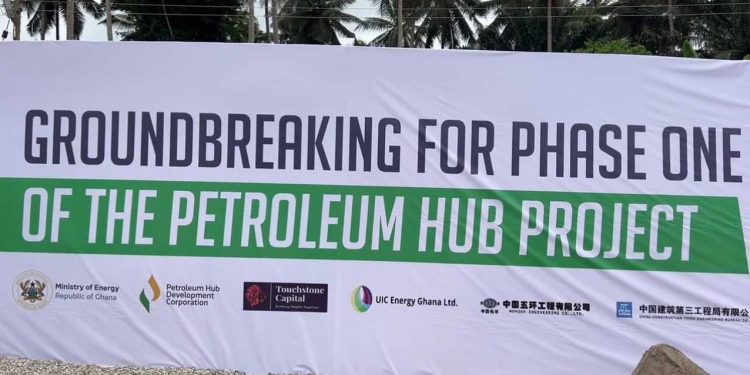Youth Groups, Environmental Advocates Oppose Government’s 20,000 Acres Land Acquisition for $60 Billion Petroleum Hub Project
A coalition of youth groups and environmental advocates has raised urgent concerns over the government’s plan to acquire 20,000 acres of land for the Petroleum Hub project in the Western Region.
The project, to be located in the Jomoro area, has been flagged by the coalition for potential widespread displacement and ecological damage.
The Coalition of Concerned Nzema People (CCNP) and Help Foundation Africa, in a joint press briefing in Accra, warned that the project’s proximity to the Akasa-Tano Forest Reserve could result in significant environmental harm and disrupt the livelihoods of thousands of farmers and fisherfolk.
Ndede Kojo Isaac, President of CCNP, emphasized that while local communities are not opposed to development, the scale of the land acquisition is excessive and threatens their economic survival.
“Allocating 20,000 acres for this project will strip our people of their livelihoods, especially those dependent on farming and fishing,” he stated. “Over 70,000 farmers and 240,000 residents, 80 per cent of whom are women and youth, rely on the fertile land for agriculture, including the renowned Nzema coconut industry.”
The coalition has proposed a reduction of the initial land allocation to between 5,000 and 7,000 acres, with phased releases based on project progress.
Additionally, they called for communal land to be recognized as equity to ensure long-term benefits for the local population and recommended a 35 per cent employment quota for Nzema youth in both artisanal and managerial roles.
Concerns were also raised regarding the Strategic Environmental Assessment (SEA) process. Ndede Kojo noted that despite the commencement of the SEA, affected communities were neither consulted nor informed about its findings.
“Compulsory acquisition at meagre compensation rates risks depriving future generations of their land rights,” he warned.
Kyei Kwadwo Yamoah, Executive Director of Help Foundation Africa, highlighted the project’s potential environmental threats, particularly to the Akasa-Tano Forest Reserve and surrounding wetlands.
“These ecosystems are vital for biodiversity, climate resilience, and water regulation. Their degradation could disrupt local water systems and exacerbate food insecurity,” he explained. “The reserve serves as a critical habitat for wildlife and a buffer against coastal erosion, while the wetlands support fish breeding grounds and agricultural activities.”
The coalition has formally petitioned the Office of the President and engaged with the Minister of Lands and Natural Resources to explore alternative solutions.
Mr Yamoah stressed the coalition’s preference for dialogue over confrontation, urging the government to balance national development goals with community rights.
First proposed under the previous administration, the Petroleum Hub project is aimed at bolstering Ghana’s energy sector. However, stakeholders insist that development must not come at the cost of ecological integrity or communal livelihoods.
The coalition vowed to continue its advocacy efforts, demanding inclusive consultations and sustainable compromises before the project moves forward.








